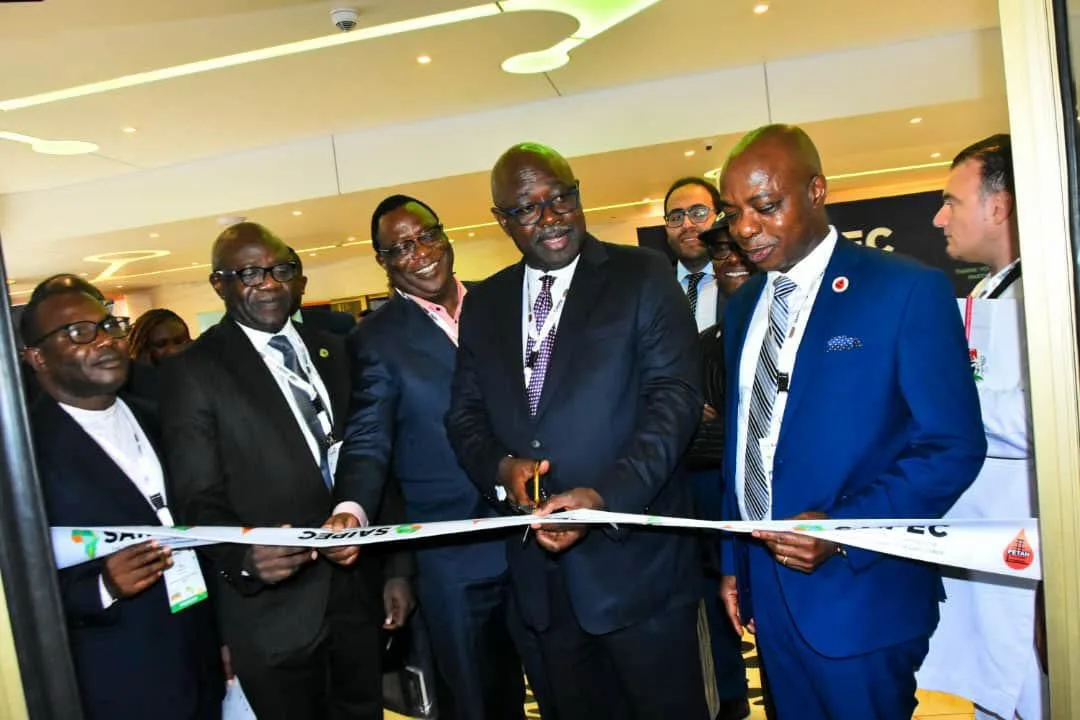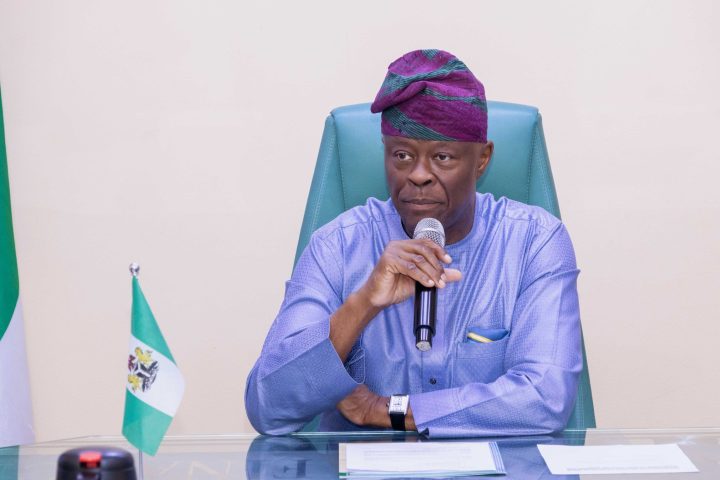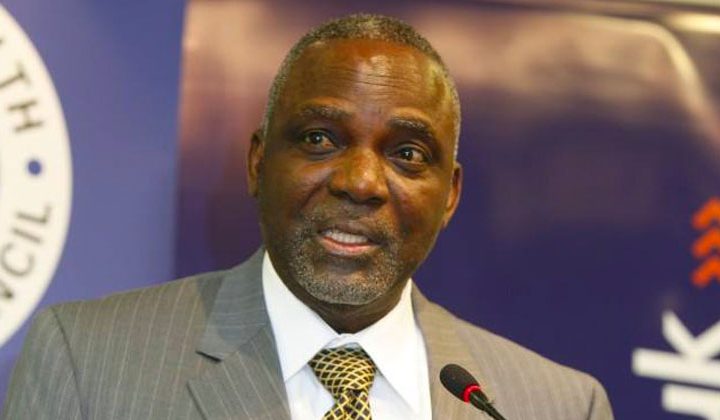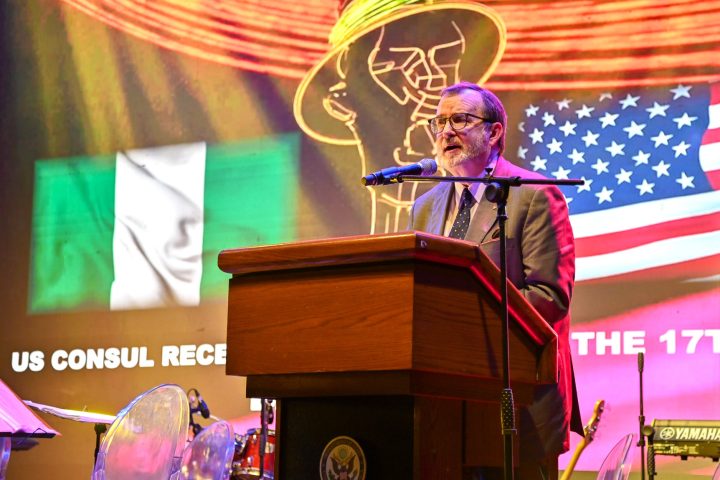Engr. Felix Omatsola Ogbe, Executive Secretary of the Nigerian Content Development and Monitoring Board (NCDMB), charged sub-Saharan African countries to be up to date with developments in the global oil and gas sector and implement a coordinated strategy to promote industrialisation, strengthen local content development, and promote sustainable economic growth across the continent.
Engr Ogbe made the call while delivering a Keynote Address at the 9th Sub-Saharan African International Petroleum Exhibition and Conference (SAIPEC), in Lagos, on Tuesday.
Join our WhatsApp ChannelAccording to him, countries like Nigeria, Angola, and Ghana have made significant progress in local content development by increasing indigenous participation in the oil and gas industry.
He, however, lamented that “fragmented implementation continues to hinder collective progress.”
The NCDMB boss called for a collaborative strategy among petroleum-producing nations in sub-Saharan Africa that would foster the sharing of best practices and enhance cross-border partnerships that could drive the competitiveness of indigenous players.
In his paper entitled “Sub-Saharan Africa Local Content Collaboration Strategy,” Engr. Ogbe identified harmonisation of local content policies, human capital development, investment in infrastructure, funding for local companies and technology transfer, as key pillars to Africa’s collaboration strategy.
READ ALSO: Africa Energy Bank Set For Launch In 1st Quarter, Eyes $120bn Asset Base
He noted that “there is a need to develop a robust local content framework that positions the region for long-term economic prosperity,” and that this could be fostered “through the collaborative efforts of APPO [African Petroleum Producers Organisation] and the United Nations Economic Commission for Africa and the African Union.”
Engr. Ogbe also highlighted the importance of the African Continental Free Trade Agreement (AfCFTA) as a critical legal framework that could be leveraged to achieve collaborative local content strategy in Africa, given the free trade area it has created by integrating 1.3 billion people across 54 African countries with a combined gross domestic product of over $3 trillion.
READ ALSO: NCDMB Restates Commitment To Achieving 70% Target For Local Content In Oil, Gas Industry In 2027
On human capital development, which he described as “pivotal to the successful implementation of local content,” he observed that approximately 60% of Africa’s population is currently under the age of 25, and that this teeming population provides a unique opportunity to fast-track development. “A large, young workforce,” he noted, “can drive expansion through increased productivity and expansion.”
The NCDMB boss dwelt at length on how investment in infrastructure could catalyse regional economic growth, citing the 650,000-barrel-per-day Dangote Integrated Refinery and Petrochemical Company, which he noted would afford Nigeria and other African countries partnership opportunities for sourcing petroleum products and fertiliser.
Similar projects capable of leveraging collaborations include Kenya’s Konza Technology City, Grand Ethiopian Dam, Lekki Free Trade Zone (Lagos), and facilities like the SHI-MCI FPSO Fabrication/Integration Yard in Lagos. Others highlighted by the Executive Secretary were NCDMB’s Nigerian Oil and Gas Parks Scheme (NOGAPS) being developed in seven locations in Nigeria, to which he invited interested businessmen and investors seeking to manufacture industry-related equipment, components and spares to apply.
READ ALSO: NCDMB Charges Oil Firms To Utilise Capabilities Of Local Service Companies In Industry Projects
Speaking on funding, Engr. Ogbe said: “A regional fund or financial framework that provides credit facilities, guarantees, and investment incentives would strengthen indigenous firms,” noting with satisfaction that an African Energy Bank, established by APPO with the support of the NCDMB, which has taken equity investment in it, is soon to be operational.
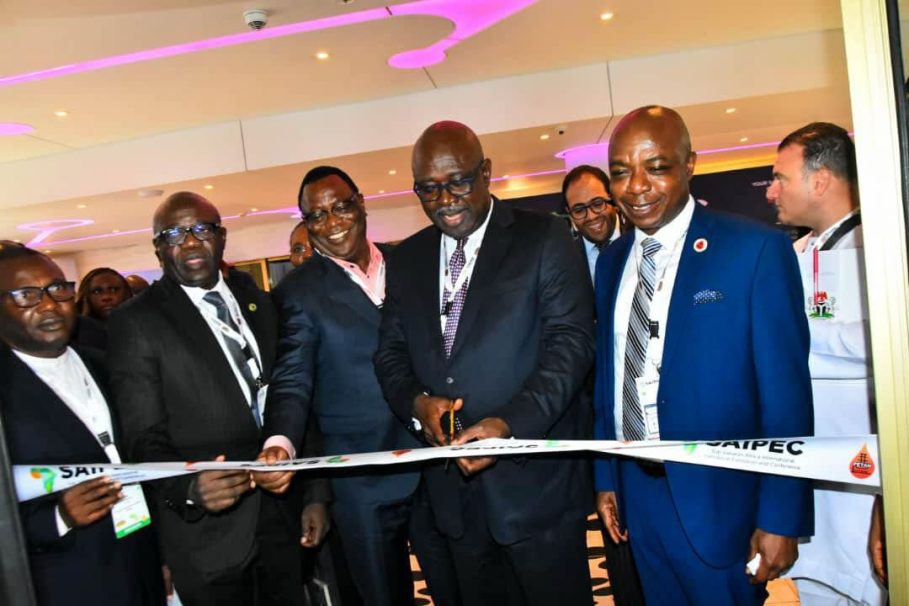
In regard to technology transfer and innovation, he pointed out that “Encouraging joint ventures, research collaborations, and technology-sharing agreements among African nations will drive the adoption of cutting-edge solutions and indigenous technological advancements in the African economy.”
The overall strategy discussed by Engr. Ogbe envisages roles for academia and research institutions, which must collaborate on industry-driven research, innovations, and skills development. In his words, “By working together, we can create a formidable and self-reliant petroleum sector that delivers long-term benefits for our economies, businesses, and people.”
Earlier on Monday, in a Pre-Event Session, the Director, Monitoring and Evaluation of the NCDMB, Mr. Abdulmalik Halilu, delivered a paper on “Optimisation of Developed Capacities and Capabilities in Africa for the Growth of African Oil and Gas Industry.”
In the presentation, with illustration from Africa’s Hydrocarbon Map, he discussed Local Content Value Proposition for Africa, Concepts, and Way Forward. Under Local Content Value Proposition, he highlighted research and technology development, local employment, strategic partnerships, ownership and control of assets, while Supply Chain Optimisation threw light on sustainable operations, increased production and utilisation of locally made goods, and contribution to GDP.
Under Way Forward for Sector-Specific Industrialisation, Mr. Halilu charged petroleum-producing countries to “identify and develop niche industries, promote specialization and value addition, establish export-oriented economic zones.” For trade and regional integration under AfCFTA, his suggestion was, “Harmonise trade policies and regulations, develop efficient transport and logistics networks, export expansion grant to companies promoting intra-Africa trade.”

